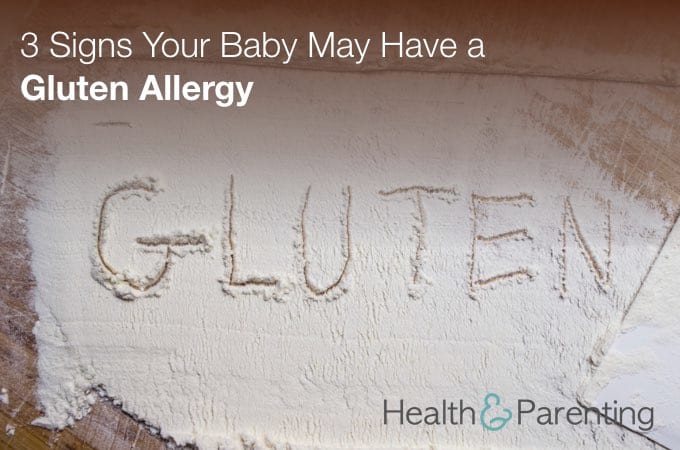Unless you’ve been living in a cave for the last decade, you’ve likely heard plenty about gluten allergies. Even if you’ve never gone gluten-free yourself, you certainly know someone who has, and you’ve definitely seen the wide variety of products available to replace carb items for those suffering from gluten intolerance.
But what are the chances your baby could be one of those sufferers?
The reality is that a growing number of people have found themselves struggling with gluten in recent years, and babies are no different. It wouldn’t be unheard of at all for your little one to have an allergy to gluten, a protein composite in wheat and related grains. There could also be something more complex going on; not just a simple allergy, but an intolerance as a result of Celiac disease.
Before you panic, though, let’s go over some of the basic signs of a gluten allergy for babies:
- Tummy Troubles: To include diarrhea, constipation, gas, bloating, reflux, excessive spitting up, or stomach pain.
- Failure to Thrive: Slow weight gain or anemia.
- Skin Irritation: Rashes of eczema.
Now, each of these things could also indicate a variety of other problems, just because your baby has diarrhea does not mean that he or she is gluten intolerant. But if you have recently started introducing solids and the symptoms appeared shortly after, it is worth considering.
There are blood tests to check for gluten allergies, but it’s important to know that these tests are often inaccurate, especially when used with babies or young children. So your little one could test negative but still have an allergy that needs addressing.
If you suspect gluten intolerance, the easiest way to test that theory is to cut gluten out of your baby’s diet for a few weeks and see if that makes a difference in the symptoms you are witnessing. If it does, you may have your answer. If not, and if the symptoms persist or appear to get worse, it may be time to make a visit to the pediatrician’s office.
One thing to keep in mind is that if you are still breastfeeding, you should cut out gluten too. Otherwise, your baby may still be getting trace amounts of gluten through your breast milk.
In some cases, children may outgrow a gluten allergy. Reintroducing again in 6 months to a year can help you to determine if your child’s reaction is fading. But even in the case of severe gluten allergies, maintaining a gluten free lifestyle is easier today than ever before. There are support groups, alternative food options, and countless recipes available.
While it may seem overwhelming at first, this is one allergy you can certainly navigate around.
Written by Leah Campbell, infertility advocate, adoptive mama, writer and editor. Find me @sifinalaska on Twitter.
This information is not intended to replace the advice of a trained medical doctor. Health & Parenting Ltd disclaims any liability for the decisions you make based on this information, which is provided to you on a general informational basis only and not as a substitute for personalized medical advice. All contents copyright Health & Parenting Ltd 2016. All rights reserved.










